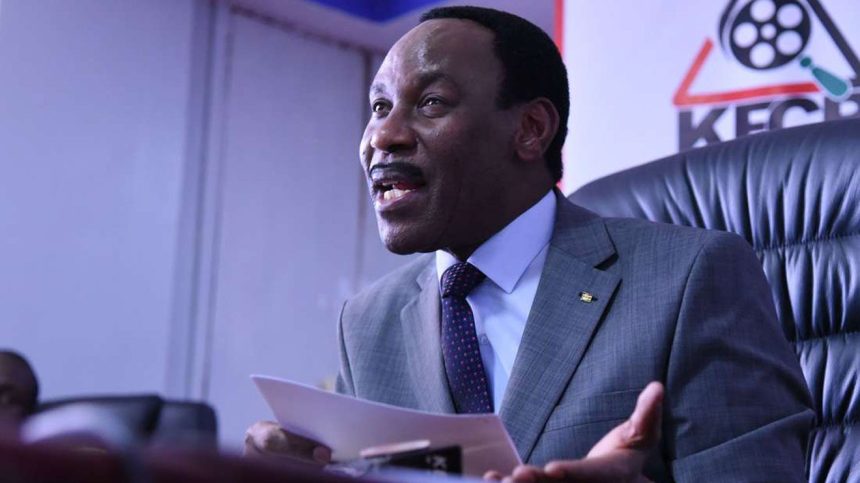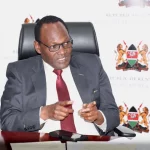The Music Copyright Society of Kenya (MCSK) is under fire for failure to account for Ksh.56 million collected as royalties in 2023.
This was revealed by the Kenya Copyright Board (KECOBO) chairman Joshua Kutuny on Wednesday, who flagged a disparity in the royalties collected by MCSK, Kenya Association of Music Producers (KAMP) and the Performers Rights Society of Kenya (PRISK) last year.
MCSK, KAMP and PRISK are the three licensed music Collective Management Organisations (CMOs) and they were invited to meet KECOBO’s board of directors to account for monies collected in 2023.
From the information presented by the three CMOs, the board said it established that a sum of Ksh.249,687,212.80 was collected jointly from January to December 2023.
The copyright board however pointed out a disparity in amounts declared by MCSK and those declared by KAMP and PRISK for the year’s joint collection.
“While KAMP and PRISK declared a collection of Ksh.249 million and they accounted for Ksh.61 million and Ksh.52.7 million, respectively, MCSK on its part declared receipts of Ksh.109 million representing a shortfall of Ksh.26 million,” Kutuny said in a statement.
Cumulatively, MCSK declared total revenues of Ksh.139,295,094, Kutuny added, which comprised Ksh.109 million from public performance and Ksh.30 million from mechanical income.
KECOBO said MCSK could not account for the Ksh.26 million received from the joint collection and another Ksh.30 million from other CMOs abroad and Google Ireland.
It noted that during the meeting, all the CMOs were represented by CEOs and chairmen, except MCSK which sent a director and a legal officer.
The matter has been handed over to the Ethics and Anti-Corruption Commission (EACC) and Director of Criminal Investigations (DCI) for investigation, Kutuny said.
LESS ROYALTY PAYMENT
At the same time, the KECOBO directors noted that royalties were paid only from the first quarter of the 2023 collections.
“All the societies did not set aside royalties from collections in quarters two, three and four despite an improved business environment,” said the copyright board chair.
KECOBO noted that if the revenue were to be paid to MCSK members per the copyright regulations, each artist could earn at least six times the amount paid during the year in royalties.
The board further observed that the income from broadcasting stations, public service vehicles (PSVs) and new media revenue is “grossly poor,” to which the CMOs made various improvement proposals.
KECOBO said it shall be acting on the proposals in due course through engagement with relevant stakeholders such as the Communication Authority, the Inspector General of Police and the Interior Ministry to establish a framework for enforcing CMO.
‘GOVERNMENT-RUN CMO’
The revelations come days after Gender, Culture, Arts and Heritage Cabinet Secretary Aisha Jumwa said her ministry is working on a plan to have music copyrights and royalties paid through the government-owned eCitizen platform.
Her comments followed her Public Service counterpart Moses Kuria’s announcement that the government seeks to make amendments to the Copyright Act “to create a government-run Collective Management Organisation.”
“Our artists will be individually registered. They can view online how much money is collected. Siku 40 za wezi wa jasho ya artists zimeisha,” Kuria said in a February 11 post on X.
But the MCSK CEO Ezekiel Mutua shot down the proposal, terming it ineffective. He said the move could lead to legal battles, arguing that private rights cannot be regulated.
Mutua claimed some musicians have been misleading ministers by encouraging the government to collect copyright and royalty fees for them via the government services portal.



